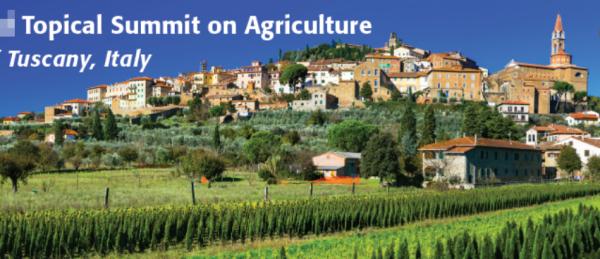Experimentation in agriculture IS necessary. Just make it as diverse as possible
I recently observed that the only missing voices at a coming Summit on Agriculture seemed to be… farmers, and digital technologies that THEY could design and control. This is the answer I just received
from the organizers of the IoT Vertical and Topical Summit for Agriculture:

Being the co-author of a paper about “Digital DIY for self-sustainability of rural areas” ( slides here), I had asked several questions about “Interoperability and future-proofness of Farming 4.0”, which may be summed up as “is this going to be just a digital version of the Monsanto seeds and pesticides that farmers MUST buy every year, or of those John Deere tractors they can’t repair by themselves?”
The following paragraphs are the answer that I promptly received by Dr. Adam Drobot, of the IEEE IoT Initiative.
Will farmers buy into stranded investments? Will they loose control over their destiny?
Marco,
You have asked a very good set of questions and if we understand them correctly there are two basic concerns that you have raised - both of which we hope will be addressed at the Summit.
The first question we interpret as: Will farmers who capitalize IoT solutions find that in the end they have bought into stranded investments?
The straight forward answer is that this will happen some of the time and that its important to look beyond the hype and understand what the risks are. That said there are aspects of Agriculture where IoT Technologies are mature and there are reputable vendors who are safe to do business with including start-ups.
There are also aspects that are on the “learning curve” where standards don’t exist, attrition of suppliers is high, and the outcomes are speculative. Here its necessary for the farmer to do the homework and only take on the risks that they can take on or share the risk with others, including the supplier.
Experimentation is necessary, without it there is no progress. No start up initiates a business to fail but at the same time no technology gets debunked unless it has faced real use under realistic conditions - and that involves the farmer who is the final arbiter.
The second question we interpret as: Will farmers loose control over their destiny because the technologies are too complicated or too unreliable or lock the farmer into situations they would rather avoid?
The answer is no! If anything IoT is not about Technology it is about delivering value and benefits. If a farmer does not see or understand the benefit - they should not buy in. That value must be tangible and we would suggest significantly greater than the total expense.
Best regards from the IEEE IoT Initiative!
Let’s see…
I am grateful to Dr. Drobot and his colleagues for answering promptly. I do agree that “Experimentation is necessary, without it there is no progress”, and (see the paper and slides above) digital technology has a crucial, non-replaceable role in experimentation and true progress of agriculture.
For the moment, my concern remains: but it is not about big companies investing in new technology, even in agriculture, to make lots of money. What concerns me is only if that approach to agricultural innovation (OK, to innovation in general) is the only one, or the one that gets most of the coverage. Especially when it comes to basic, publicly funded research, and farmer support programs.
That Summit in Monteriggioni will be surely very interesting, and present a lot of great ideas. I still hope to attend it, and report about everything I hear.
But I would also really like to see announcement for another summit, of the same caliber, focusing on bottom-up, non-proprietary, community-owned solutions to the same problems. Any sponsors?
Who writes this, why, and how to help
I am Marco Fioretti, tech writer and aspiring polymath doing human-digital research and popularization.
I do it because YOUR civil rights and the quality of YOUR life depend every year more on how software is used AROUND you.
To this end, I have already shared more than a million words on this blog, without any paywall or user tracking, and am sharing the next million through a newsletter, also without any paywall.
The more direct support I get, the more I can continue to inform for free parents, teachers, decision makers, and everybody else who should know more stuff like this. You can support me with paid subscriptions to my newsletter, donations via PayPal (mfioretti@nexaima.net) or LiberaPay, or in any of the other ways listed here.THANKS for your support!